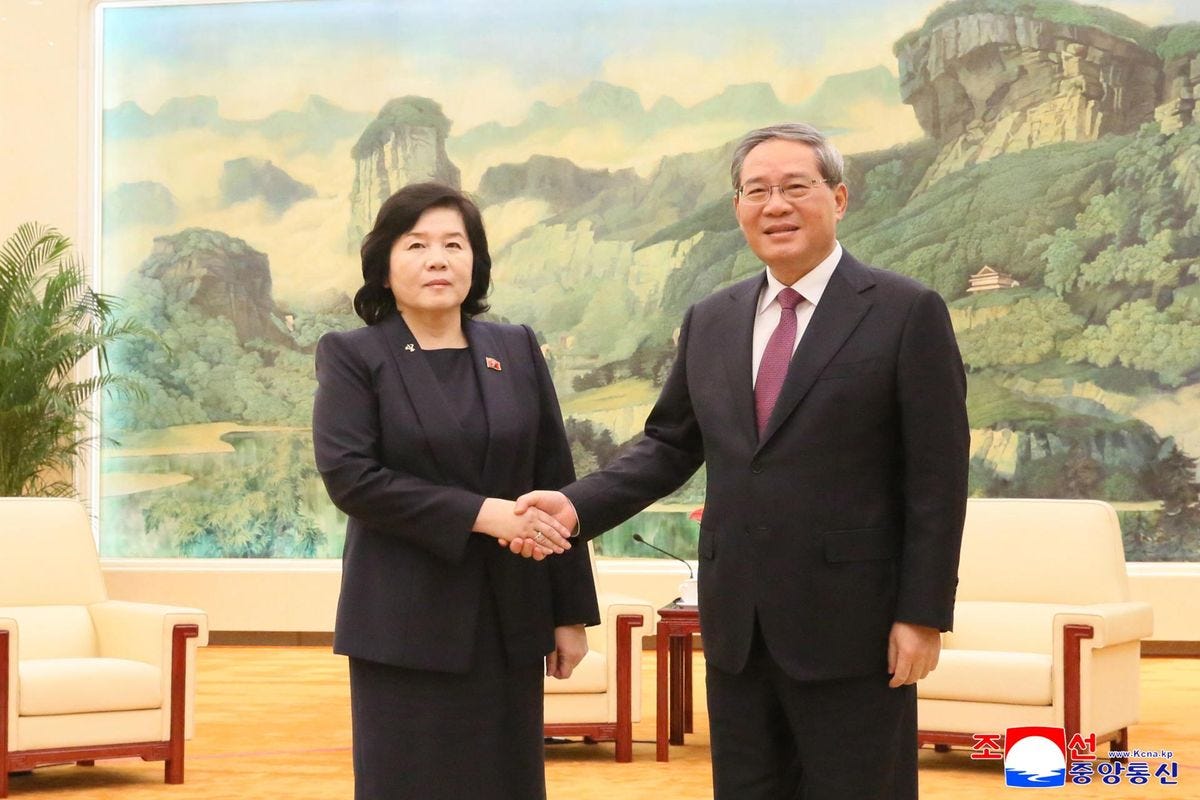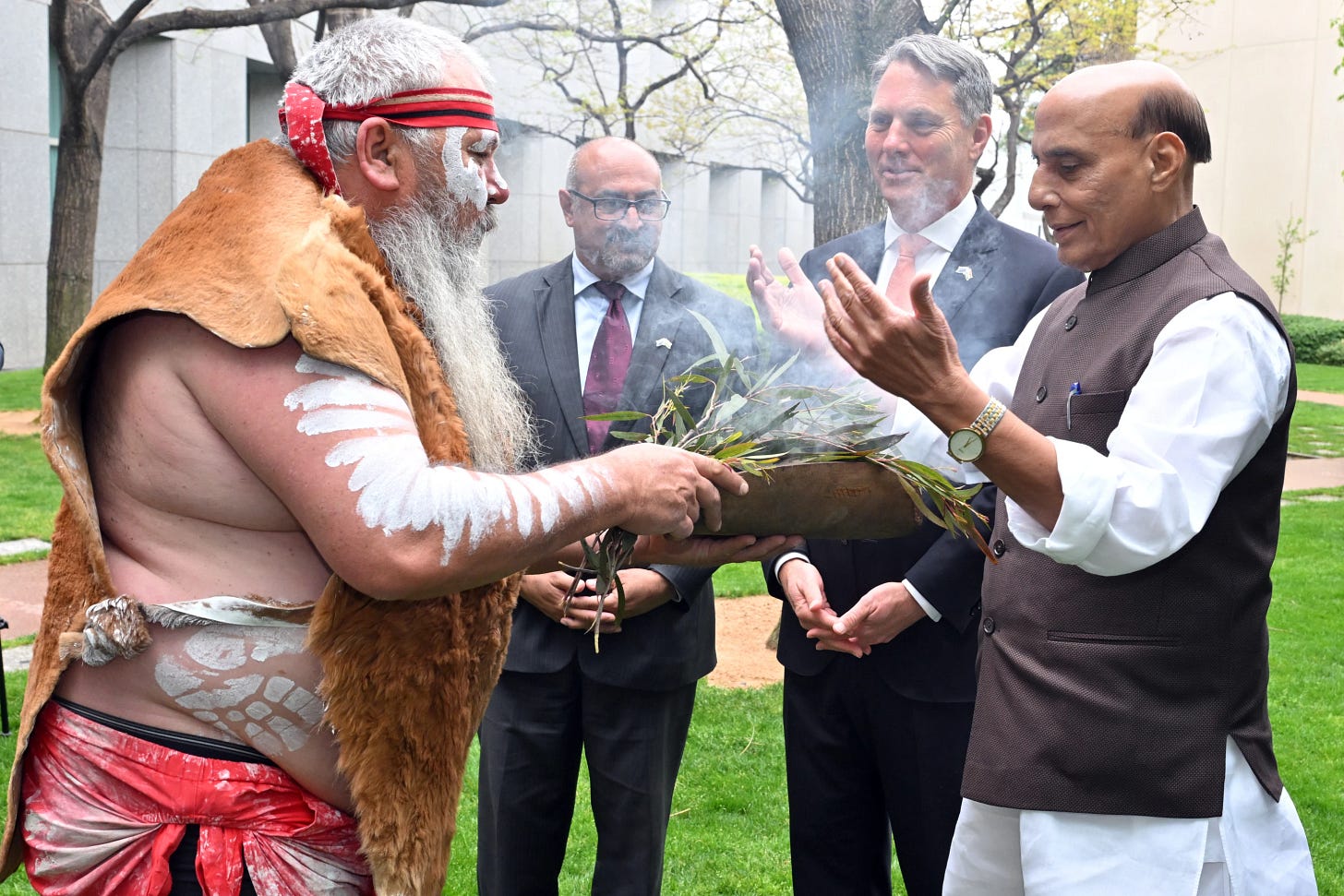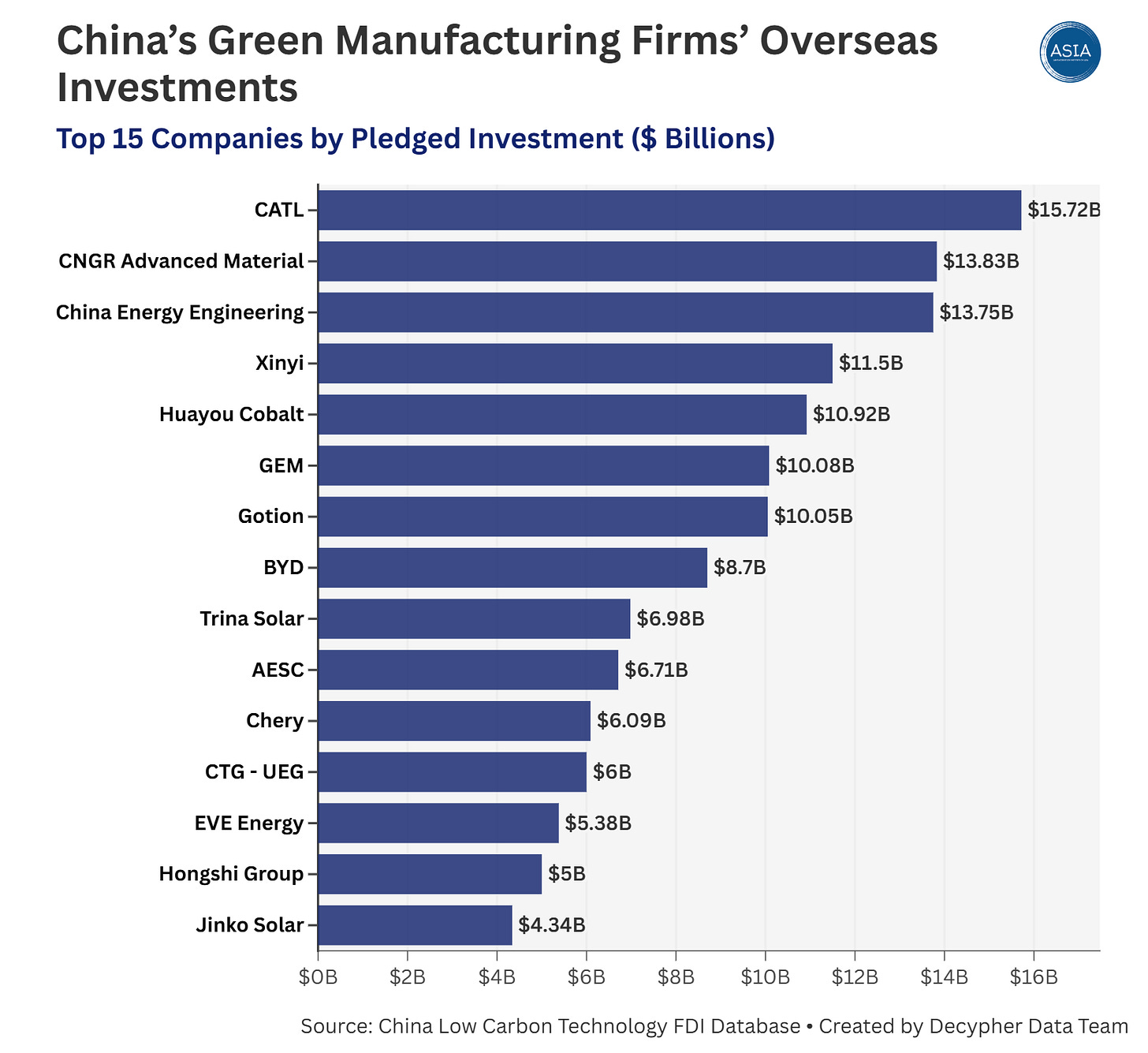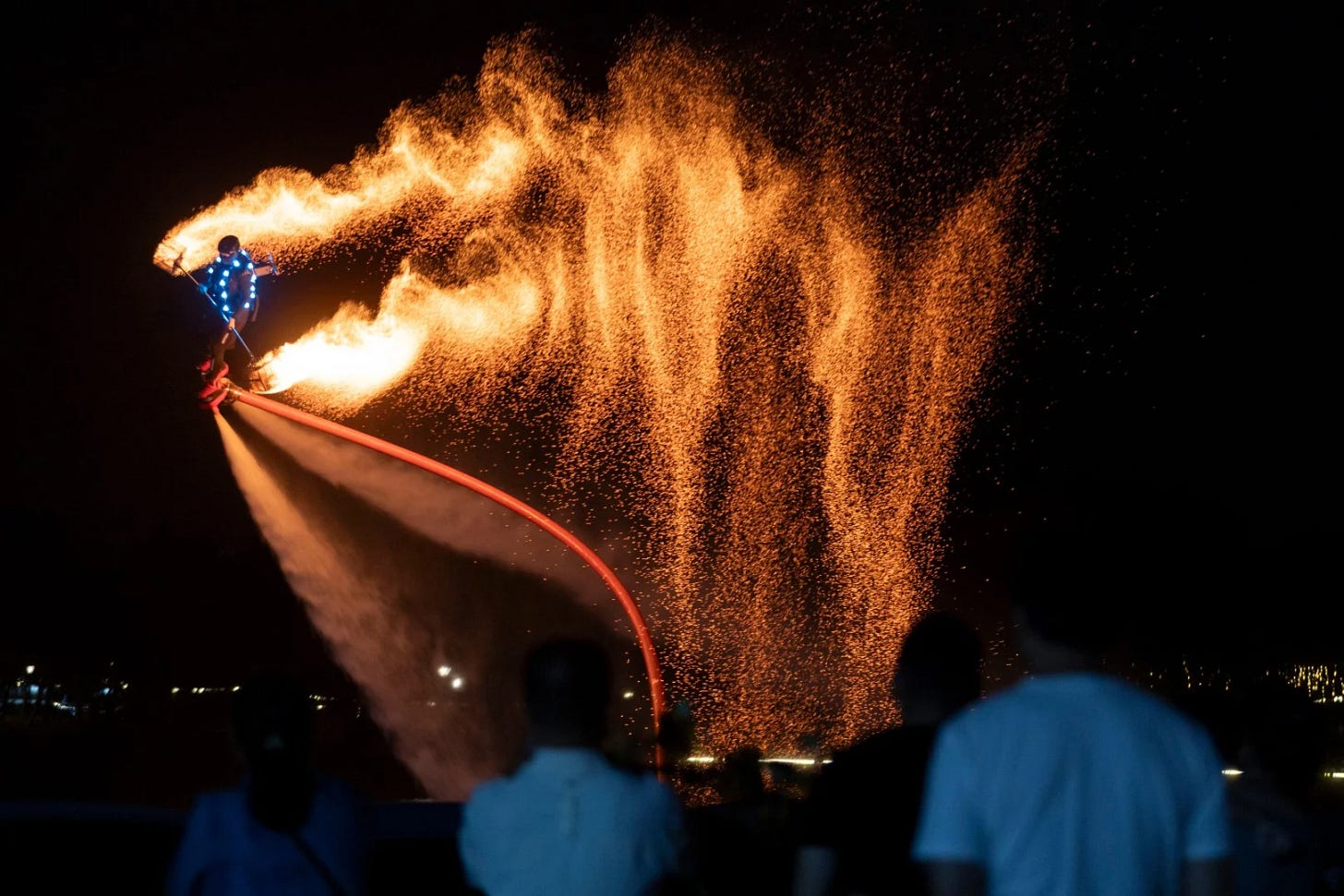China This Week: Beijing Tightens Export Controls, Unveils New AI and Chip Strategy, and Plans Joint Military Drills with Malaysia
This week in China, we explore key shifts in its domestic and foreign policy landscape. We also expand our coverage to look at the key developing international stories.
China Quote 🗩
“In reality, we all experience fatigue and anxiety as a result of work and life, but these real emotions deserve respect and should not be deliberately amplified for traffic. The internet is not a dumping ground for negativity,”
- China’s state broadcaster CCTV on the campaign to manage public perception about China.
Economic Activity🏦
China tightens export rules on rare earth technology amid U.S. trade tensions
BBC reports that Beijing has expanded restrictions on the export of rare earth processing technology, formalising controls on mining, smelting, and magnet manufacturing. The new regulations bar exports to foreign arms makers and some semiconductor firms and prohibit Chinese companies from cooperating overseas without approval. The move, announced ahead of Xi Jinping’s meeting with Donald Trump, shows the strategic role of rare earths, where China dominates global supply in ongoing trade and security disputes with Washington.
Mexico to consult China and others before enacting tariff hikes on car imports
Reuters reports that Mexico plans to hold consultations with China and other major trading partners before formalising proposed tariff increases on imported vehicles. The move follows growing concerns about the influx of low-cost Chinese electric vehicles disrupting domestic markets and North American supply chains. Economy Minister Raquel Buenrostro said Mexico will “follow due process” under international trade rules before finalising the decree, emphasising transparency and compliance with World Trade Organization standards.
China accelerates oil reserve construction amid strategic stockpiling push
Reuters reports that Beijing is rapidly expanding its crude oil reserve sites, adding at least 169 million barrels of capacity across 11 locations through 2026. The expansion aims to boost energy security following disruptions from Russia’s war in Ukraine and rising geopolitical risks. Analysts say China’s stockpiling, supported by state oil firms such as Sinopec and CNOOC, is absorbing global oversupply and helping stabilise prices, while blurring the line between commercial and strategic reserves.
Disappearances of Chinese business leaders deepen corporate unease
The Economist reports that detentions, suicides, and public shaming of Chinese executives have surged, amplifying the country’s business pessimism. At least 39 bosses of listed firms have vanished this year under the liuzhi system of extra-judicial detention, used increasingly against entrepreneurs. Analysts say the crackdown reflects both Xi Jinping’s intensified anti-corruption campaign and local governments’ search for funds amid economic slowdown. The rise in detentions, alongside the expansion of a court-imposed credit blacklist affecting thousands of tycoons, has fuelled fears that business failure in China now carries political as well as personal risk.
US blacklists Chinese firms over drone parts linked to Hamas and Houthis
South China Morning Post reports that Washington has added a dozen China-based companies to its trade blacklist for allegedly helping supply American-made components found in weaponised drones used by Hamas and Yemen’s Houthi rebels. The US Commerce Department said the entities were part of illicit procurement networks tied to Iran’s Revolutionary Guard Corps. Beijing condemned the move and vowed countermeasures, accusing the US of abusing export controls. The sanctions come amid renewed Trump–Xi diplomacy and continuing tensions over technology and security.
US Treasury’s OFAC asked to rule on dual-use tech export dispute with China
Intelligence Online reports that the US Office of Foreign Assets Control (OFAC) has been asked to adjudicate a dispute between an American and a Chinese semiconductor firm over the export of dual-use technology. After Chinese arbitration, the US side raised national security concerns about the trade, prompting judges to refer the case to the Treasury’s sanctions office. The ruling could set a precedent for how Washington handles sensitive tech exports amid intensifying US–China competition in semiconductors.
Inside China🐉
China’s National Day travel rush hits record 2.4 billion trips
The Straits Times reports that a record 2.43 billion cross-regional trips were made across China during the eight-day National Day and Mid-Autumn Festival holiday, marking the highest travel volume on record. The Ministry of Transport said road, rail, air, and waterways all saw year-on-year increases, with daily passenger flows exceeding 300 million. Expanded high-speed rail lines, upgraded expressways, and new energy vehicle charging facilities helped ease congestion, while cross-border travel surged under new visa-free policies.
NBA returns to China six years after Hong Kong democracy tweet fallout
France 24 reports that the NBA has resumed games in China after a six-year hiatus triggered by a 2019 tweet supporting Hong Kong’s pro-democracy protests. The Brooklyn Nets and Phoenix Suns will play in Macau, marking a cautious re-entry into the Chinese market that once brought the league hundreds of millions in revenue. Analysts say the move reflects a “soft landing” approach as the NBA balances commercial goals with ongoing US–China tensions.
China and the World🌏
China’s Premier Li Qiang visits Pyongyang in first trip by a top Chinese leader in 16 years

The Korea Times reports that Chinese Premier Li Qiang arrived in Pyongyang on Thursday for a three-day visit marking the 80th anniversary of North Korea’s ruling Workers’ Party. It is the first visit by a Chinese premier since 2009 and follows Kim Jong-un’s recent trip to Beijing for China’s military parade with Xi Jinping and Vladimir Putin. Li pledged to deepen strategic communication and cooperation with North Korea amid growing trilateral alignment between Beijing, Pyongyang, and Moscow.
China to host global women’s summit with Xi Jinping to deliver keynote address
South China Morning Post reports that China will host a major global women’s summit in Beijing on October 13–14, co-organised with UN Women to mark 30 years since the landmark 1995 Beijing Conference on Women. President Xi Jinping will open the event and deliver the keynote speech, with dozens of world leaders and senior officials expected to attend. Beijing says the summit will advance global gender equality, though international observers continue to raise concerns about limits on women’s rights and civic freedoms in China.
US fires diplomat over relationship with Chinese national tied to CCP
AP News reports that the State Department dismissed a US diplomat after he admitted concealing a romantic relationship with a Chinese woman alleged to have links to the Chinese Communist Party. The firing follows a late 2024 policy that bans American personnel in China, including family members and cleared contractors, from romantic or sexual relationships with Chinese citizens. Officials said the move reflects a zero tolerance approach to safeguarding national security.
China and Malaysia to conduct joint military drill focusing on maritime security
Reuters reports that China and Malaysia will hold a joint military exercise from October 15 to 23, involving over 1,000 personnel and equipment such as vessels, helicopters, and unmanned systems. The drills, centred on humanitarian assistance, disaster relief, and anti-piracy measures, will take place in Malaysia and nearby waters. Beijing said the exercise aims to strengthen defence cooperation with Southeast Asian partners and address non-traditional security threats, as ASEAN prepares to discuss a long-delayed South China Sea code of conduct later this month.
Chinese blockade could force Taiwan into blackout by choking LNG supplies
WSJ reports that Taiwan relies on imported fuel for about 97% of its energy, with LNG generating nearly half of its electricity, making it highly vulnerable to a Chinese blockade. Wargames cited by US lawmakers suggest LNG stocks could be exhausted within roughly two weeks, prompting rationing that would hit industry and semiconductors. Taipei is weighing nuclear restarts and more storage, while US proposals seek to secure LNG shipments and insurance cover in a crisis.
Pakistan courts US with proposal for new Arabian Sea port near China’s Gwadar
Financial Times reports that advisers to Pakistan’s army chief Asim Munir have floated a plan offering the US a chance to build and operate a port at Pasni, close to China-backed Gwadar. The $1.2 billion proposal, pitched as a minerals export hub, aims to attract American investment and reduce Islamabad’s dependence on Beijing. While not yet official policy, the plan emphasises Pakistan’s bid to reset ties with Washington through trade and strategic cooperation.
Tech in China🖥️
China outlines new strategy for AI and chip leadership in next five-year plan
SCMP reports that Beijing has identified semiconductors and artificial intelligence as core battlegrounds for technological self-reliance in its upcoming 15th five-year plan (2026–2030). Officials said the focus will shift from import substitution to pioneering new chip architectures, such as FDSOI and photonic chips, while advancing open-source ecosystems like RISC-V. The plan also prioritises foundational AI research, energy-efficient “brain-inspired” computing, and integration across data, algorithms, and computing networks to strengthen China’s global competitiveness.
OpenAI says suspected Chinese operatives used ChatGPT for surveillance proposals
CNN reports that OpenAI identified users likely linked to Chinese government entities who used ChatGPT to draft proposals for surveillance tools analysing Uyghur travel data and promoting social media monitoring systems. The company banned the accounts and warned that authoritarian regimes are exploiting AI to refine repression tactics. Beijing denied the claims, saying it is building an AI governance model balancing innovation and security.
International Outlook 🗺️
Israel and Hamas agree to U.S.-brokered Gaza ceasefire and hostage deal
The New York Times reports that Israel and Hamas have reached a ceasefire agreement brokered by the United States, ending months of deadly fighting in Gaza. The deal includes the phased release of hostages held by Hamas in exchange for Palestinian prisoners, as well as expanded humanitarian access to the enclave. U.S. President Donald Trump played a direct role in finalising the accord, which Israeli officials described as “fragile but necessary.” The agreement marks the first major diplomatic breakthrough in the conflict since hostilities resumed earlier this year.
India and Australia sign new security pact expanding military cooperation

Associated Press reports that India and Australia signed a bilateral security agreement on Thursday to enhance defence coordination, including joint military staff talks and submarine rescue cooperation. The deal, signed during Indian Defence Minister Rajnath Singh’s visit to Melbourne — the first by an Indian defence minister in 12 years — emphasises the two nations’ growing partnership within the Indo-Pacific and the Quad alliance. Analysts say the move reflects India’s strategic balancing between the US and China amid rising regional tensions.
Starmer denies ministers involved in China spy trial collapse
Sky News reports that Prime Minister Keir Starmer rejected claims that ministers interfered in the collapse of an espionage case involving an alleged Chinese spy. The trial was halted after prosecutors cited national security concerns, sparking criticism from opposition MPs. Starmer insisted the decision was made independently by prosecutors, denying any government role.
Populist billionaire Andrej Babiš wins Czech parliamentary election, signalling policy shift on Ukraine

The Guardian reports that former prime minister Andrej Babiš’s ANO party has won the Czech Republic’s parliamentary election with 35% of the vote, marking a political comeback but falling short of an outright majority. Babiš, a self-described “Trumpist,” is expected to form a coalition with far-right parties such as Freedom and Direct Democracy (SPD) and the Motorists. His victory signals a likely policy shift away from supporting Ukraine and closer alignment with Hungary and Slovakia’s pro-Russian stance.
Peru’s largest congressional bloc backs ousting President Boluarte
Bloomberg reports that Peru’s biggest congressional alliance has announced support for removing President Dina Boluarte, intensifying the country’s latest political crisis. Lawmakers accused Boluarte of corruption and authoritarianism following months of protests and falling approval ratings. The motion, backed by left-wing and centrist parties, could trigger new elections if it gains a supermajority, marking Peru’s sixth presidential upheaval in less than a decade.
Kim Jong Un to showcase nuclear arsenal at major military parade
The Washington Post reports that North Korean leader Kim Jong Un is preparing a vast military parade in Pyongyang to mark the 80th anniversary of the ruling Workers’ Party. The event will display new nuclear-capable missiles, including the Hwasong-20 ICBM, and feature top Chinese and Russian delegates in a show of unity against the West. Analysts say Kim aims to project global legitimacy and highlight his growing ties with Beijing and Moscow.
Macron to name new French prime minister within 48 hours amid political crisis

Politico reports that President Emmanuel Macron will appoint a new prime minister within two days, following Sébastien Lecornu’s government’s resignation just 14 hours after being named. Lecornu told French television that a “path forward is still possible,” presenting Macron with conclusions that most lawmakers oppose snap elections and that a “platform of stability” exists to pass a 2026 budget. The president may choose a centre-left figure to form a cross-party alliance, but tensions over pension reform persist as opposition parties demand its suspension. Meanwhile, far-right leader Marine Le Pen vowed her National Rally would topple any incoming government until new elections are called.
Trump finalises $20 billion currency swap deal with Argentina
Bloomberg reports that U.S. President Donald Trump has approved a $20 billion currency swap agreement with Argentina to stabilise its peso and deepen bilateral economic ties. The deal, confirmed by Trump adviser Robert Bessent, marks Washington’s largest such arrangement in Latin America and is aimed at boosting Argentina’s dollar reserves amid inflation and debt pressures. The agreement is expected to strengthen relations between Trump and Argentine President Javier Milei, who has embraced the pact as a sign of renewed U.S. confidence in his economic reforms.
Britain’s Conservatives battle for survival as Reform UK surges ahead
Associated Press reports that the once-dominant Conservative Party is struggling to avoid political extinction, losing ground to both Labour and Nigel Farage’s Reform UK. At the party’s annual conference in Manchester, leader Kemi Badenoch admitted the Tories have “a mountain to climb,” outlining a Trump-style agenda of mass deportations, slashed welfare spending, and withdrawal from the European Convention on Human Rights.
Trump urges Thailand and Cambodia to resolve border conflict
Channel News Asia reports that US President Donald Trump sent a letter to Thai Prime Minister Anutin Charnvirakul urging Thailand and Cambodia to negotiate an end to recent deadly border clashes. Anutin said Thailand is ready for talks if Cambodia withdraws heavy weapons and clears landmines. The July fighting, which killed over 40 people, ended with a Trump-brokered ceasefire, and Cambodia has since nominated him for a Nobel Peace Prize.
One-man spam campaign derails EU ‘chat control’ bill on encrypted apps
Politico reports that a Danish software engineer’s website, Fight Chat Control, has unleashed millions of protest emails to EU officials, disrupting efforts to pass a controversial child protection law seen by critics as a threat to encryption and privacy. The tool lets citizens mass-email lawmakers opposing the proposal, flooding inboxes in Brussels and prompting backlash from policymakers and child rights groups.
Five arrested after alleged assassination attempt on Ecuador’s President Noboa
CNN reports that five people have been arrested after an alleged assassination attempt on Ecuadorian President Daniel Noboa. His convoy was attacked by a crowd of around 500 people throwing rocks in Cañar province, with signs of bullet damage later found on his vehicle, though Noboa was unharmed. Authorities have charged the suspects with terrorism and attempted murder amid growing unrest over fuel subsidy cuts.
Putin blames Russian air defences for downing Azerbaijani jet that killed 38
ABC News reports that President Vladimir Putin has admitted Russian air defences were responsible for shooting down an Azerbaijani passenger jet last December, killing all 38 people on board. He called the incident a “tragic mistake” during a press briefing, saying those involved would be held accountable. The crash, which Moscow initially denied involvement in, had strained relations between Russia and Azerbaijan and fuelled speculation of a cover-up.
Trump orders National Guard deployment to Portland and Chicago amid protest unrest
USA Today reports that President Donald Trump has ordered National Guard units into Portland and Chicago following days of violent protests over police conduct and economic conditions. The White House said the move was necessary to “restore law and order,” while local officials criticised it as federal overreach. The deployment marks one of the largest domestic security operations since Trump’s return to office, reigniting debate over states’ rights and the use of military force in civilian policing.
Hungarian novelist László Krasznahorkai wins 2025 Nobel Prize in Literature
The Guardian reports that Hungarian author László Krasznahorkai has won the 2025 Nobel Prize in Literature for his “visionary prose and mastery of apocalyptic narratives.” Known for works such as Satantango and The Melancholy of Resistance, Krasznahorkai was recognised for exploring chaos, decay and redemption in modern Europe. The Swedish Academy praised his long, hypnotic sentences and “ability to find transcendence amid collapse.”
Decypher Data Dive📊
Battery giant Contemporary Amperex Technology Co. Ltd. (CATL), the world’s largest EV battery maker, has emerged as China’s top clean technology investor abroad since 2021, pledging $15.7 billion, surpassing CNGR Advanced Material Co. Ltd. and China Energy Engineering Corp. (CEEC), according to Net Zero Industrial Policy Lab at Johns Hopkins University.
Image of the Week📸
China’s ‘golden week’ celebrates record-breaking travel, spending
— — —
Data By Bhupesh
Edited By Aurko
Produced by Decypher Team in New Delhi, India
— — —




